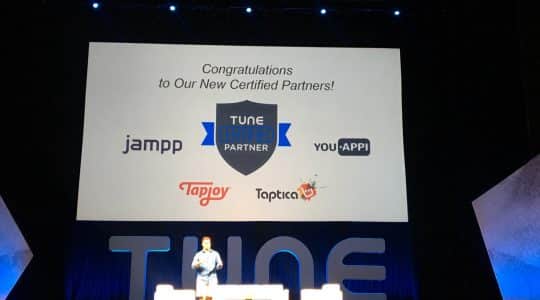Microsoft seems to be declaring war on two of Google’s business units by enabling the Do Not Track (DNT) feature in Internet Explorer 10 by default. On one hand, Microsoft appears to be attacking Google’s bottom line by defaulting millions of Internet Explorer installs to a setting that could prevent Google from using behavioral targeting in its advertising products for a significant percentage of web users. On the other hand, Microsoft is positioning Internet Explorer 10 as the pro-consumer alternative to Google Chrome.
Do Not Track is the FTC proposed signal for a consumer to indicate their interest in opting out of interest-based behaviorally targeted advertising. The Digital Advertising Alliance (DAA), an coalition of the major marketing and media associations in the United States, indicated in a position paper its willingness to abide by the standard and enforce Do Not Track in a self-governing capacity where a consumer has been provided details about the kind of data being collected and elected to opt out.
By setting IE 10 to Do Not Track by default, Microsoft, a member of the Digital Advertising Alliance, is going against the DAA standard. Microsoft is positioning this decision as a step toward putting people first, according to Chief Privacy Officer, Brendon Lynch. The one company with the most to lose is fellow DAA member, Google.
Attacking Google’s Business Model
By most measures, Google has two of the three most visited sites on the Internet in Google.com and YouTube.com. Facebook is the other top three destination. Both of Google’s properties make their money with advertising. A significant percentage of that advertising relies on behavioral targeting to show ads that are more closely matched with a user’s interests and recent web travels.
Behaviorally targeted ads tend to be more effective than those without the benefit of such targeting. More effective ads also tend to be lucrative both to the advertiser and to the ad platform that serves them.
Google already allows users to opt out of personalized ads. If Google follows DAA guidelines, it will start self-policing its use of behavior-influenced advertising to include respecting the DNT browser signal by the end of 2012. As it encounters IE 10 users on the web Google would need to ignore behavioral signals from those users and instead default to advertising that lacks behavioral targeting.
Depending on which measuring stick you use, versions of Internet Explorer represent anywhere from 30%-54% of total desktop browser usage. Lucky for Google, Internet Explorer is widely fragmented, with IE versions 6-8 still holding a large percentage of installs, but IE 10 will certainly become one of the most widely used versions by the end of 2013.
Those of us who purchase ads from Google will also be impacted, but Google gets hit on multiple fronts. Google’s DoubleClick and Adwords platforms will likely suffer as ad buyers are forced to adjust to losing the ability to retarget and otherwise engage with compatible users. A fairly large percentage of Google’s ad impressions happen on Google’s own services, like Gmail, YouTube and Google.com search results. Google’s Adsense product will also be impacted network wide. All those Google impressions will theoretically lose the ability to target the behavior of IE 10 users.
Internet Explorer 10 vs. Google Chrome
The other place where Microsoft hopes to make an impact is in overall browser marketshare. Google Chrome has been gaining popularity and has passed IE by one estimate. Google Chrome is currently the only major browser without a built-in Do Not Track feature. It’s possible to download an extension that integrates DNT functionality, but recent versions of Internet Explorer, Opera, Safari, and Firefox all currently include Do Not Track as a core privacy option.
A lack of Do Not Track in Chrome isn’t lost on Microsoft’s IE team. On the IEBlog, Microsoft CVP, Dean Hachamovitch, provides what reads like a thinly-veiled jab at Google Chrome by saying, “While some people will say that this change is too much and others that it is not enough, we think it is progress and that consumers will favor products designed with their privacy in mind over products that are designed primarily to gather their data.”
Clearly Hachamovitch is hoping Do Not Track will encourage more Windows users to stick with the built-in browser.
How will Google Respond?
It will be interesting to see how Google responds to IE 10. They could look at the DNT header data coupled with the browser agent and choose to ignore DNT for any IE 10 install. Obviously anyone who actually opted to be excluded is the loser in that scenario, but with Microsoft opting everyone in, it’s impossible to know which IE 10 users truly want to opt out of behavioral advertising. Considering Google allows anyone with a Google Account to opt out of personalized ads, this may be their best bet.
Google Accounts certainly represent a wild card in Microsoft’s default to Do Not Track. Anyone who is browsing the web signed into a Google Account is doing so based on the terms of use for that account, which may override whatever signal the browser is sending.
Microsoft might have muddied the Do Not Track waters to the point where the entire project is broken. By eliminating DNT as a choice, Microsoft is effectively telling Google and all other advertisers that they aren’t required to honor DNT because it was a forced implementation rather than a user-selected choice.
Does IE Really Matter?
While all versions of IE represent 1/3 to 1/2 of the desktop browser market, that market is only a portion of the overall browser market. Mobile Safari and Chrome on Android are both growing quickly. Windows 8 will be playing catch-up in the tablet space.
Many of the desktop and laptop IE installs are found in corporate environments where browsers are already restricted by group policies, content filtering, and proxies.
As consumers purchase computers and tablets with Windows 8, many of those users will download Chrome and Firefox to use in place of IE 10. If past behavior is any indication, at least half of all Windows 8 computers will browse the web from something other than IE 10. The number of desktops and laptops using IE will continue to shrink over time. Some percentage of those users may opt-in to DNT, but certainly not all of them. Some of the people currently using older computers will opt to replace them with an iPad instead of upgrading to a Windows 8 computer.
Is it possible that IE 10 won’t matter with or without DNT enabled?
Author
Becky is the Senior Content Marketing Manager at TUNE. Before TUNE, she handled content strategy and marketing communications at several tech startups in the Bay Area. Becky received her bachelor's degree in English from Wake Forest University. After a decade in San Francisco and Seattle, she has returned home to Charleston, SC, where you can find her strolling through Hampton Park with her pup and enjoying the simple things in life.




could this spell the death of affiliate marketing that will affect lots of work-from-home entrepreneurs?
I started to post a comment here, but it evolved into this blog post http://absolutelywindows.com/blog/2012/6/4/internet-explorer-10-amp-ldquodo-not-trackrdquo.html
[…] Jake Ludington, who’s been working in online marketing for as long as I can remember, sees the move as an attack on Google: […]
You speak as though after 20 years microsoft is going to put out a decent product that works and will not be riddled with holes and security threats. I am a windows user but only out of necessity like many others. If google ever puts out an OS its over for microsoft. I am also a web developer and I think Microsoft should focus on getting rid of IE6 users before worrying about IE10. Now that most developers are to a point that they just tell IE6 users they have to upgrade before they can view our websites, we are now forced to add the famous “shim” for later versions of IE because we are developing in html5 and microsoft is still living in 1985. What I never understood is why as consumers we have given microsoft a pass for so long. If anyone else released such insecure products on a regular basis there would be class action suites flying everywhere. Microsoft is however allowed to just abandon users and move on to the next money maker. IE6 is the biggest security threat of all time yet countless people still use it at a risk beyond most of their comprehension.
Googles solution is going to be to wait it out. Microsoft like AOL will eventually get it. Most people are done. Google is not innocent either in all of this. Trust is what makes these companies grow to what they have become and if google continues the “shady” antics with the facebook attitude of Steve Urkil “Did we do that” they to will fall and someone else will rise.
[…] Las voces en contra de Microsoft no se han hecho esperar, mientras la polémica sigue creciendo es difícil tomar partido puesto que ambas posiciones enarbolan argumentos válidos que las sustentan. […]
[…] You can read more about IE10′s “Do Not Track” settings here: http://www.hasoffers.com/blog/microsoft-attacks-google-do-not-track/ […]
[…] […]